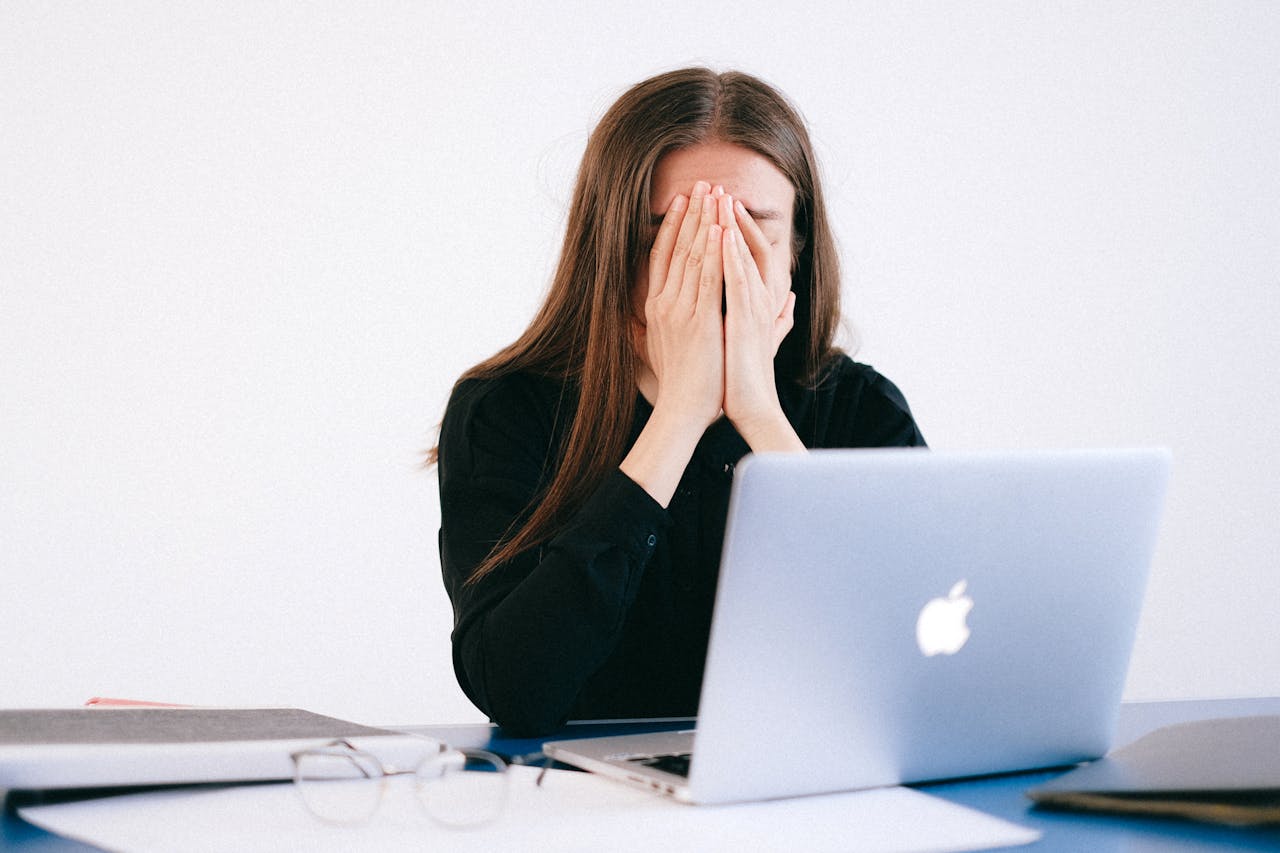
Body + Mind is reader-supported. We may earn an affiliate commission when you buy through some of the links on our site.
I had a feeling something might be wrong with my throat when it felt like it was closing while I was indoors. At first, I thought it was just general fatigue, but I started to notice I felt cold and down. The front of my neck was feeling just a little swollen, too. And after I got my diagnosis, my Hashimoto’s Disease got worse.

The doctor’s office was quiet, so it felt like my thoughts were just echoing after it was finally confirmed that I had Hashimoto’s disease. It’s an autoimmune disorder that affects the thyroid, especially the goiter area. My doctor reassured me that it would be a manageable condition, but I couldn’t shake my thoughts off how there’s no real cure for it.
The main reason my Hashimoto’s getting worse was because I was overthinking and started getting poor to no sleep. I found studies about how sleep quality and stress can affect thyroid function and vice versa, and just like that, I felt even worse.
I do try to calm myself down. The 5-4-3-2-1 method worked best when I panicked, as it made me turn to my senses and ground me back to reality. However, it’s hard not to feel upset when things start to feel out of your control.
I was already experiencing health anxiety over my health. One of the first signs of Hashimoto’s disease was the bone-numbing exhaustion I’d feel as soon as I woke up. I didn’t feel like moving at all, and that worried me.
I think I already had a bit of a lifestyle problem that might have instigated the thyroid problem. As a workaholic, I just didn’t know when to stop and sleep. It could have also been hereditary, as some of my relatives had to deal with hypothyroidism.
Yes, it can. And apparently, I wasn’t just being paranoid that my Hashimoto’s disease got worse. Catherine Gervacio, Registered Dietitian and nutrition writer reveals thyroid function progresses because of the body’s autoimmune response. The cells are damaged over time as thyroid hormone production declines, and lifestyle almost speeds it up.
“The most common [are] long-term stress and poor lifestyle — like poor eating habits and having a sedentary lifestyle — that weaken the immune system,” Gervacio reveals. “The effect of this [is] worsening Hashimoto’s symptoms.”

The way Hashimoto’s disease gets worse is gradual, but there are noticeable flare-ups in the goiter and your overall condition. Here are the factors that affect it.
Stress might already be a bit of a given my predicament, but it’s still important to provide a heads-up for those who may also be facing Hashimoto’s disease. Too much pressure can manifest into hormonal imbalance, throwing off your thyroid function. Ensure it doesn’t translate into a lack of sleep or improper sleep quality.
Hashimoto’s disease is a condition that affects the throat, which comes into contact with many things you ingest. Even the air you breathe is a cause for concern, as any substance may contain microbes like bacteria or viruses. Your immune system is highly vulnerable to these elements and how they can attack your body.
Certain foods tend to aggravate your Hashimoto’s disease rather than just worsen it. For example, soy products have goitrogens, which can interfere with thyroid hormone production and worsen Hashimoto’s. Added sugars and refined grains are also a food group that may do more harm than good to your thyroid.
Hashimoto’s disease means getting a list of prescriptions from your doctor. However, if you have another condition you’re managing, there’s a chance your other medication may be negating the effects. Without your prescription, you may be jeopardizing your thyroid function even more.

Controlling Hashimoto’s disease is a challenge, especially amidst the flare-ups and when longer-term effects start to arrive. However, there are several ways to manage it that give me a little bit of comfort. Here are some examples:
Hashimoto’s disease can get worse when you least expect it, but only when you let your health slip. Exercise caution with what you consume and experience. It also helps to put yourself in fewer stressful situations and learn to take a deep breath.
Your email address will only be used to send you our newsletter, and at any time you may unsubscribe. For more information, see our Privacy Policy.